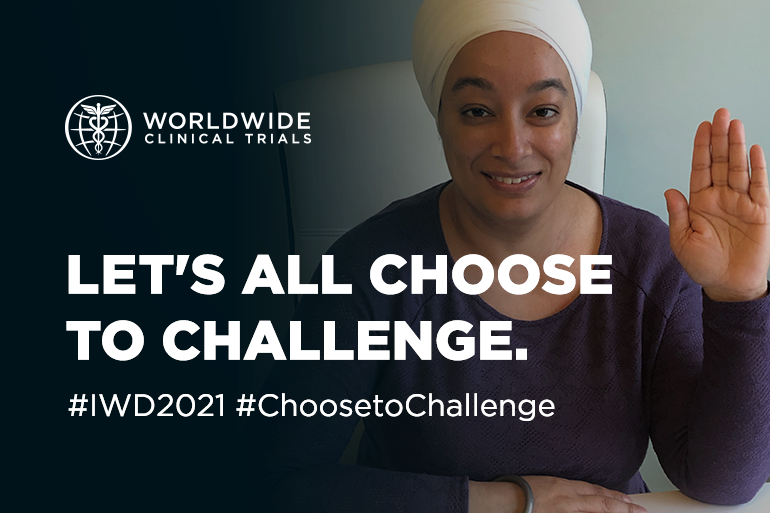
Aman Khera’s thoughts on the potential impact of inequality in clinical research for women and how we at Worldwide continue to play our part to ensure safe and effective treatments for everyone.

Today, as I reflect on our recognition of International Women’s Day 2021 (and Women’s History Month,) it’s impossible not to take notice of the amount of long overdue attention the topic of equity in clinical research is receiving. Some days it seems like the world is waking up to this important, far-reaching, and yes, multi-faceted, issue. So, I wanted to share perspective on the potential impact of inequality in clinical research for women and how we at Worldwide continue to play our part to ensure safe and effective treatments for everyone.
Our industry is aware that women are underrepresented in clinical trials, we are also aware that medications may affect men and women in different ways. The underrepresentation of women can result in women having more adverse side effects to approved drugs, due to biological differences or incorrect dosages that just were not explored enough when developing the potential drug. We must make substantial efforts to continue to increase the number of women in trials, especially within early phase research and encourage the further analysis of data based on gender.
For example, this study idelved deep into how sex differences in pharmacokinetics can predict adverse drug reactions in women. “Women experience adverse drug reactions, ADRs, nearly twice as often as men, yet the role of sex as a biological factor in the generation of ADRs is poorly understood. Most drugs currently in use were approved based on clinical trials conducted on men, so women may be overmedicated. We determined whether sex differences in drug pharmacokinetics, PKs, predict sex differences in ADRs.” The lack of females in drug dose trials leads to overmedicated women. This gender gap leaves women experiencing adverse drug reactions nearly twice as often as men.
We must do better.
And, according to the U.S. Food and Drug Administration’s Drug Trials snapshot, iiwomen accounted for 56% of participants in clinical trials leading to drug approvals in 2020. Although this number is encouraging, bear in mind that CDER approved 53 novel drugs, and upon a deeper dive there are some drugs approved where female participation is low.
Again, we can do better.
We’re doing our part. When we are given the opportunity, Worldwide is proud to partner with biotech and pharmaceutical sponsor companies that target disease indications that predominantly impact women. We seamlessly have rolled into our patient recruitment and retention work, effective strategies to recruit and retain women in our clinical trials, respecting the various cultural intersections that can come into play. We are mindful of the barriers that can exist for women in participating in clinical trials on a day to day basis; working in a job, the responsibilities of caregiving at home; whether it be for children or parents or both, access to a family doctor, accessibility to trial sites, childcare considerations, or language barriers. An overarching theme educating people on clinical research and how to become a trial participant. Virtual and hybrid clinical trials continue to forge the way to success in furthering clinical trial participation.
We’ve learned over the years that there is no set ideal playbook for recruiting female participants, this has to be looked at on a study by study, country by country, region by region basis and there needs to be customized accommodations made for recruitment and retention of female clinical trial participants. Worldwide is experienced in this and will continue to make an impact. We’re playing our part in the clinical research space to continue to empower women to participate in clinical studies. We are these women, they are our friends, grandmothers, mothers, sisters, and daughters.
Worldwide is proud to do our part in driving equality in clinical research. We commit to challenge and call out gender inequality.
How will you help forge a gender equal world? #ChoosetoChallenge #IWD2021
iReference study: Sex differences in pharmacokinetics predict adverse drug reactions in women: https://bsd.biomedcentral.com/articles/10.1186/s13293-020-00308-5
ii<https://www.fda.gov/media/145718/download>,



